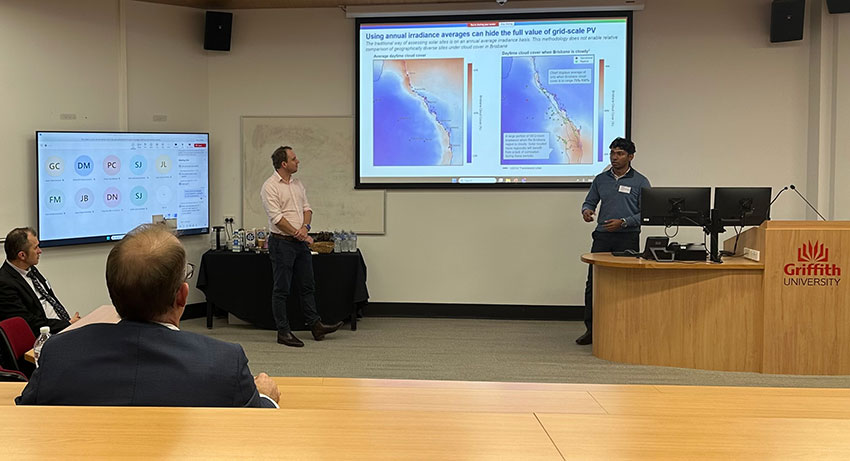12 Jul 2024
- Renewable energy
- Employees
- Graduates
The perfect place TO START
The energy sector is an exciting place to work and full of opportunities for graduates interested in building a career in the industry, as CS Energy graduate Metabha Wanninayaka has found.
“Being part of CS Energy’s graduate program has been a fantastic experience,” said Metabha, who holds a Bachelor of Advanced Finance & Economics (Honours) from the University of Queensland.

“When I was in university, I wasn’t sure exactly what area I wanted to go into for my career, but I knew I wanted to work in an area that was technical but engaging.
“I think the energy sector has been the perfect place for me because it mixes the fundamental economic theory of markets with the physical infrastructure constraints of a complex grid with a changing supply mix,” Metabha said.
“I’ve been able to gain an insight into some really interesting renewable and firming assets that CS Energy is investing in to support Queensland’s changing electricity grid.
“There’s so much to learn in this space, but the people here are so knowledgeable and have been incredibly supportive in helping us graduates learn.”
Metabha said his favourite part about the graduate program is the rotations that allow grads to experience working across multiple teams, getting a taste of different kinds of work and developing relationships with different teams.
“I think it really helps you get an understanding of all the cool work that goes on across the whole organisation, learning who people are and what they do, and it really helps you figure out where your own interests lie,” he said.
INDUSTRY EXPOSURE
Metabha recently had the opportunity to present some of the work he’s been involved with to fellow industry professionals at Griffith University’s Centre for Applied Energy Economics and Policy Research (CAEEPR) with CS Energy’s Future Energy Development Lead Andrew Wilson.
“We presented on the role that rooftop solar has to play in an increasingly crowded solar market,” Metabha said. “We used weather data since 2010 and found a clear relationship between local Brisbane cloud cover levels and Queensland daytime electricity prices.

Photo: Andrew Wilson and Metabha Wanninayaka presenting their research at the Centre of Applied Energy Economics and Policy Research (CAEEPRS) at Griffith University.
“What this showed was that, while Queensland has one of the highest rooftop solar uptakes in the world, it’s concentrated in a small geographic market – Brisbane, Gold Coast and the Sunshine Coast - which is also a hotspot of weather activity, especially in summer when we have storms.
“So, when there are periods of cloudy or adverse weather, it means there isn’t as much rooftop solar being exported to the energy market, and prices start to rise, which means we need to look at ways to mitigate or spread the risk of weather on renewable energy generation to ensure diversification of supply, especially the location of large-scale solar farms.”
nothing compares to experience
“Grad programs like ours are really important for the energy industry,” said Andrew, whose team Metabha is currently working with.
“I remember from my own early days in the workforce, nothing compares to hands-on experience across a wide variety of topics, and from being around passionate people who are working towards the same goals,” he said.
“As well as the work itself, these programs are about building relationships across the business and industry alike, and it also gives grads an idea about the thought processes behind business decisions and how projects come to life, and they’re getting that experience very early in their careers, which will set them up for big futures in an industry which is undergoing a once in a generation period of change.”